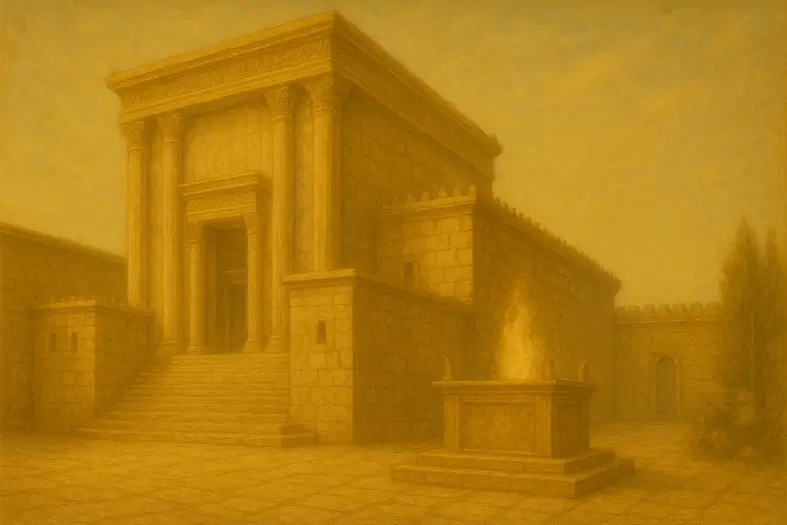


A kohen with a temporary blemish or injury is forbidden from performing the Temple service until fully healed.
This mitzvah prohibits kohanim with temporary blemishes — such as boils, cuts, or other passing conditions — from conducting service in the Mikdash. Unlike permanent blemishes, which disqualify a kohen indefinitely, temporary ones suspend service only for the duration of the defect.
Rambam notes that the Torah disqualified temporary blemishes to maintain the dignity and reverence of the avodah. Sefer HaChinuch highlights that service in the Mikdash was meant to inspire awe; even temporary imperfections could distract from that sacred atmosphere.
The Talmud distinguishes between lasting and passing blemishes, clarifying that a kohen may return to his service once healed. Ramban emphasizes that the prohibition symbolizes that Divine service must always project wholeness, not frailty, even when such frailty is only temporary.
Commentary & Classical Explanation:


Represents the concept of spiritual intentionality, purity, and sanctity—set apart for a higher purpose.
Concerns the Beit HaMikdash, korbanot (offerings), and priestly service.
Signifies awe and reverence toward Hashem—living with awareness of His greatness and presence.
Empathy in motion — responding to another’s pain with sensitivity, patience, and understanding. Whereas chesed gives broadly, rachamim responds gently, tailoring care to a person’s emotional or spiritual needs.
Mitzvot that uphold fairness, honesty, and moral responsibility. Justice is kindness structured — ensuring that society reflects G-d’s order through truth, equity, and accountability.
Mitzvot that define and deepen the relationship between a person and their Creator. These include commandments involving belief, prayer, Shabbat, festivals, sacrifices, and personal holiness — expressions of devotion rooted in divine connection.
Mitzvot that govern ethical behavior, kindness, justice, and responsibility in human relationships. These actions build trust, dignity, and peace between people.

Dive into mitzvos, prayer, and Torah study—each section curated to help you learn, reflect, and live with intention. New insights are added regularly, creating an evolving space for spiritual growth.

Explore the 613 mitzvos and uncover the meaning behind each one. Discover practical ways to integrate them into your daily life with insights, sources, and guided reflection.

Learn the structure, depth, and spiritual intent behind Jewish prayer. Dive into morning blessings, Shema, Amidah, and more—with tools to enrich your daily connection.

Each week’s parsha offers timeless wisdom and modern relevance. Explore summaries, key themes, and mitzvah connections to deepen your understanding of the Torah cycle.